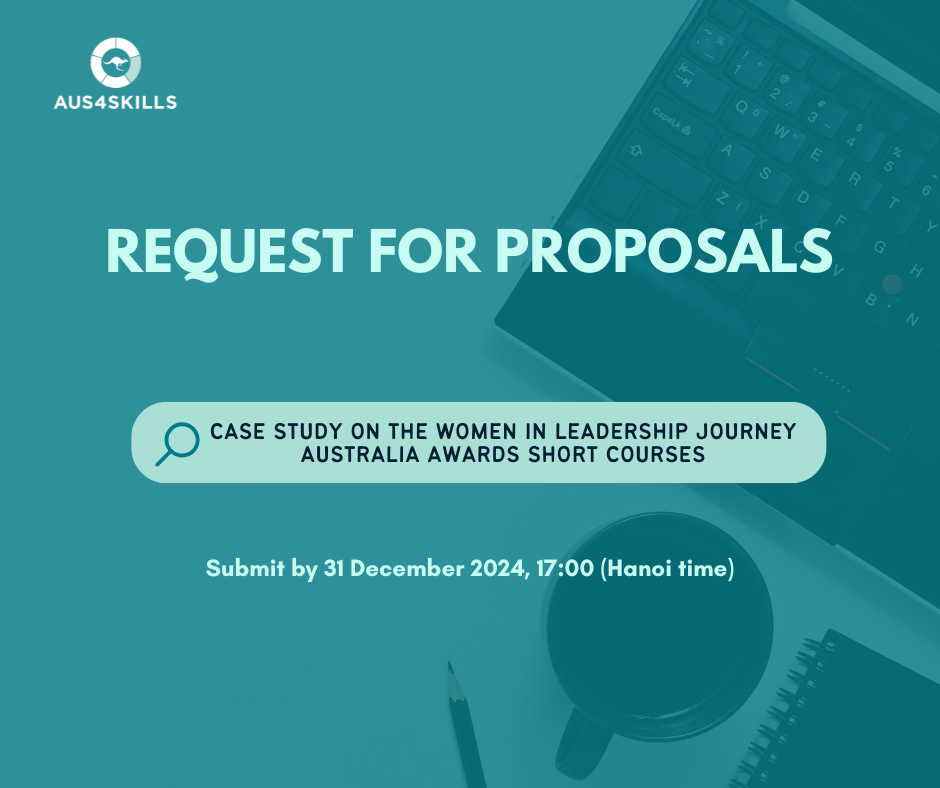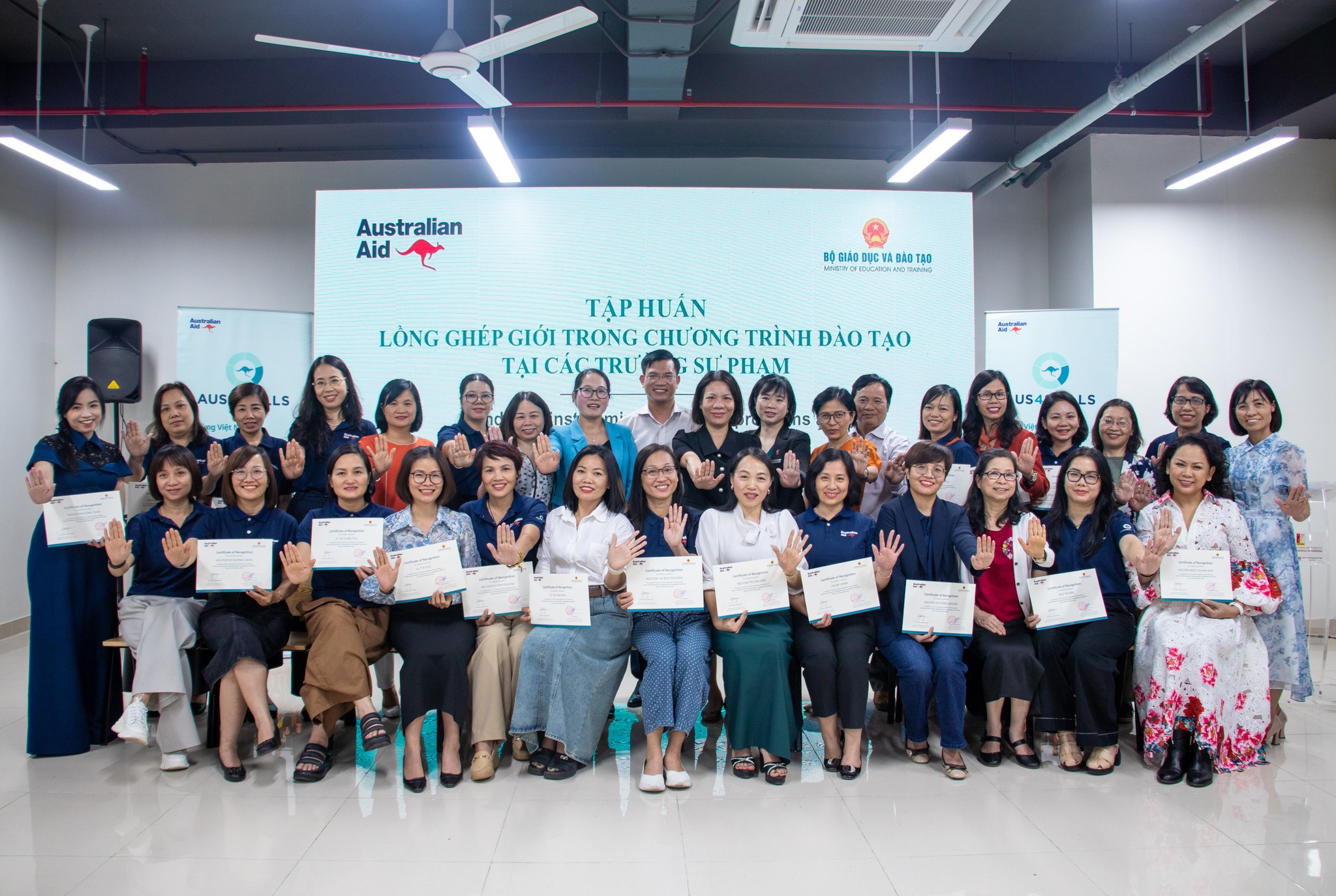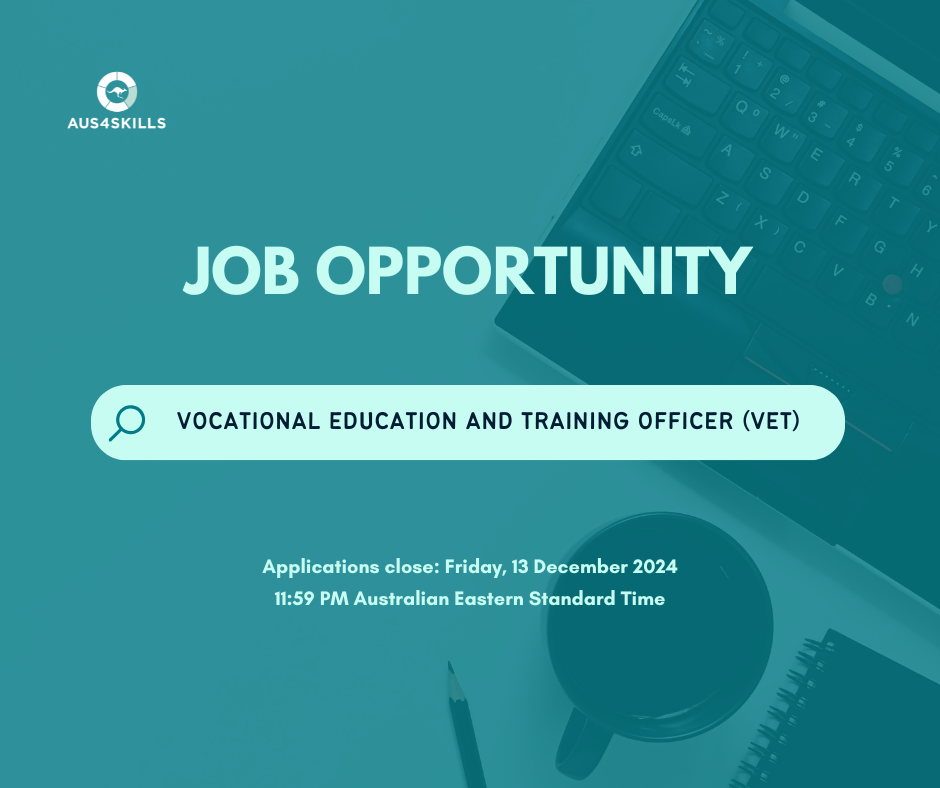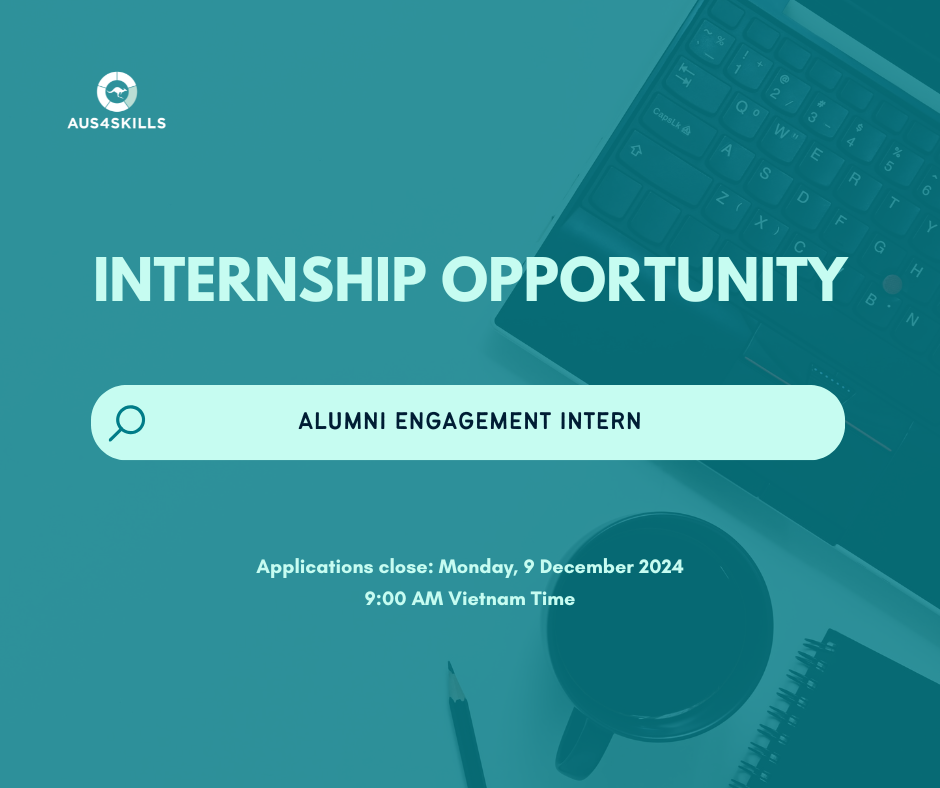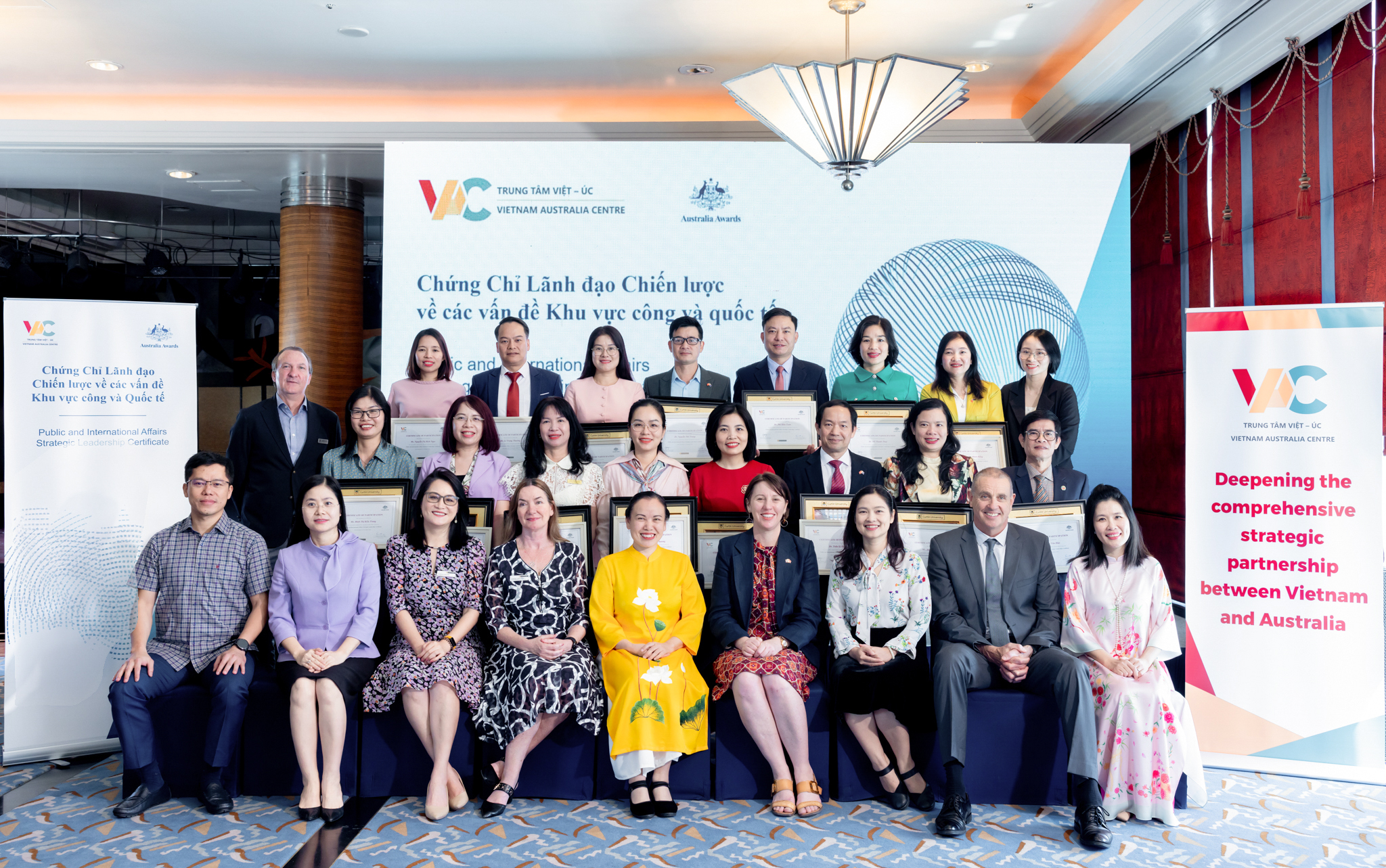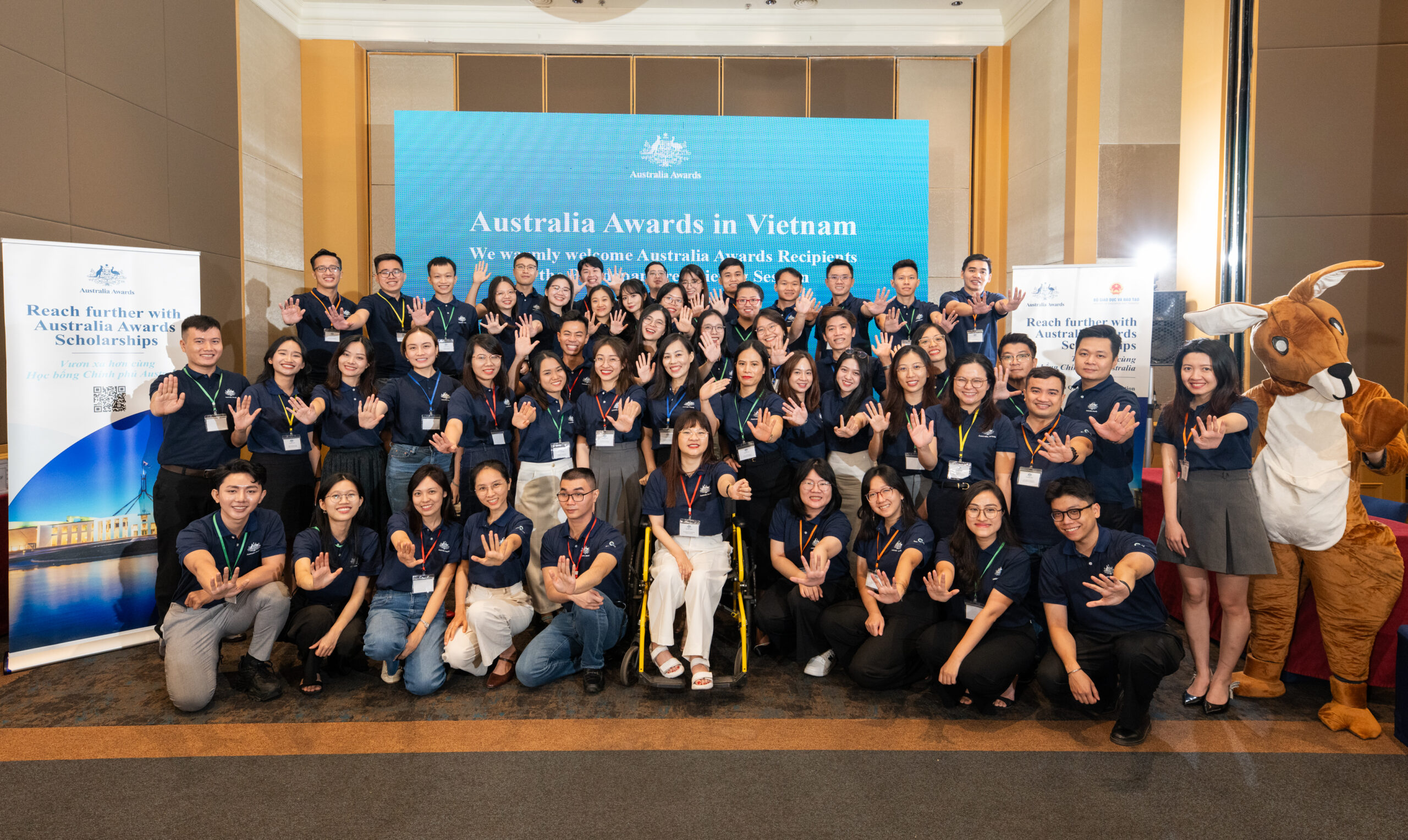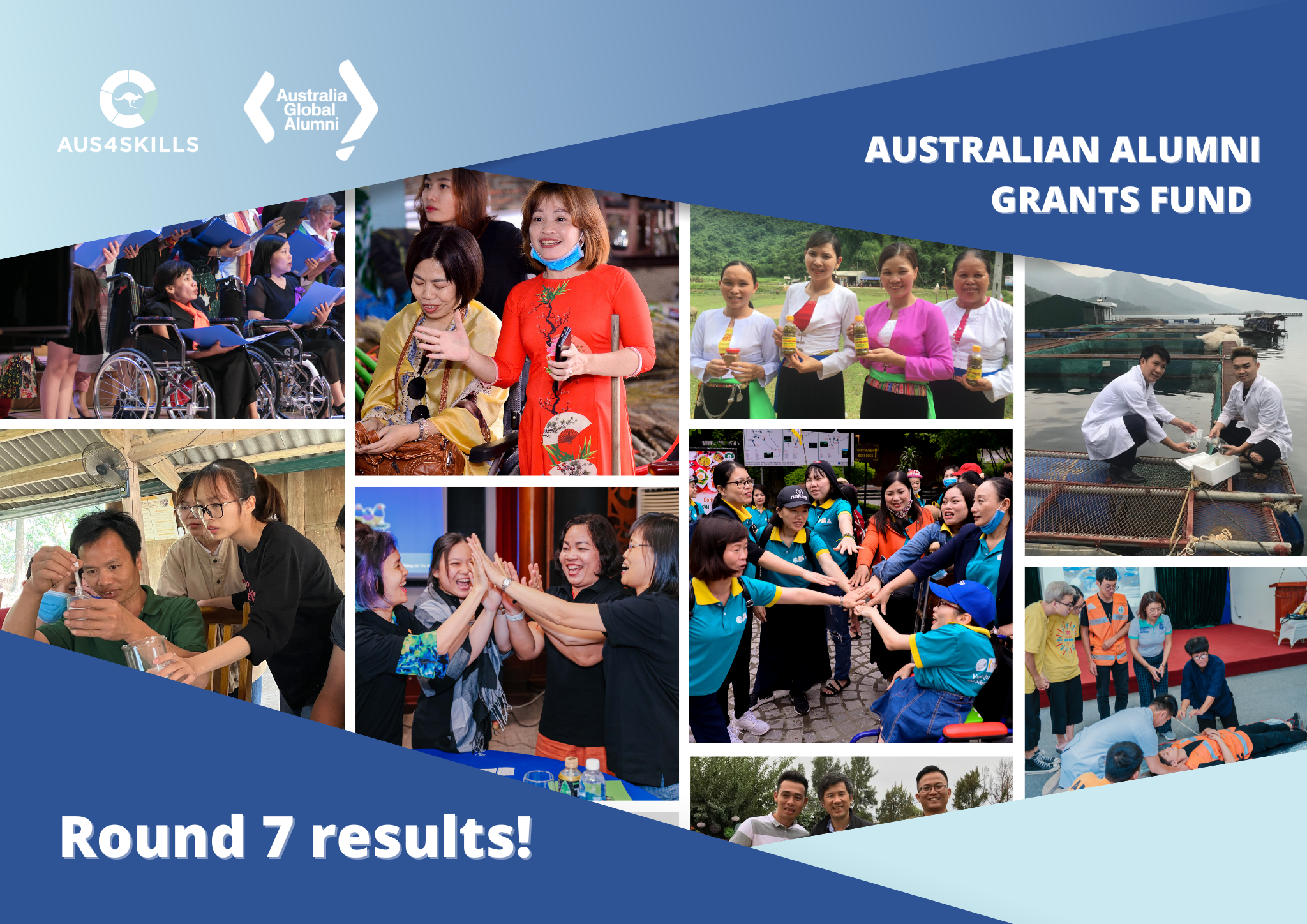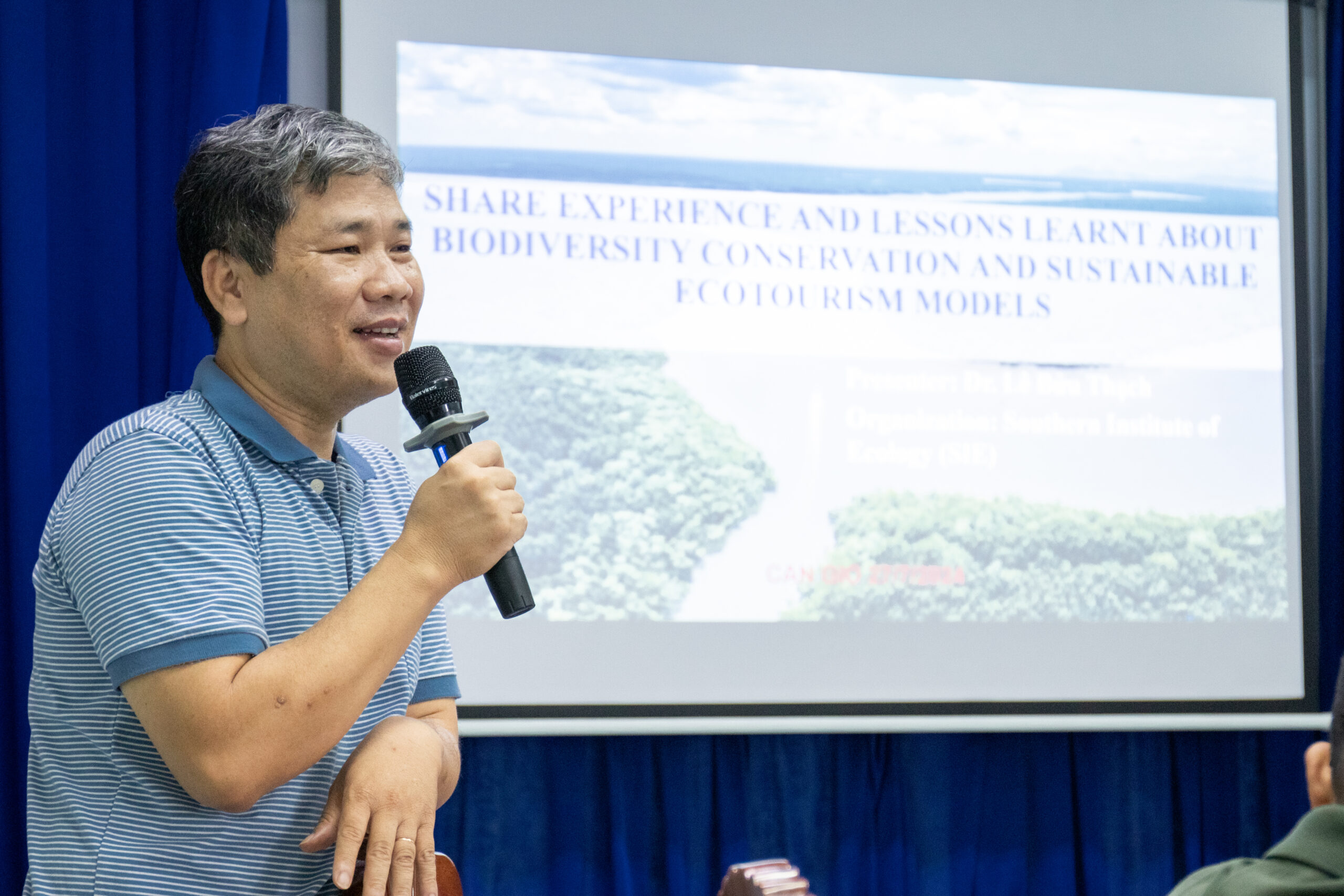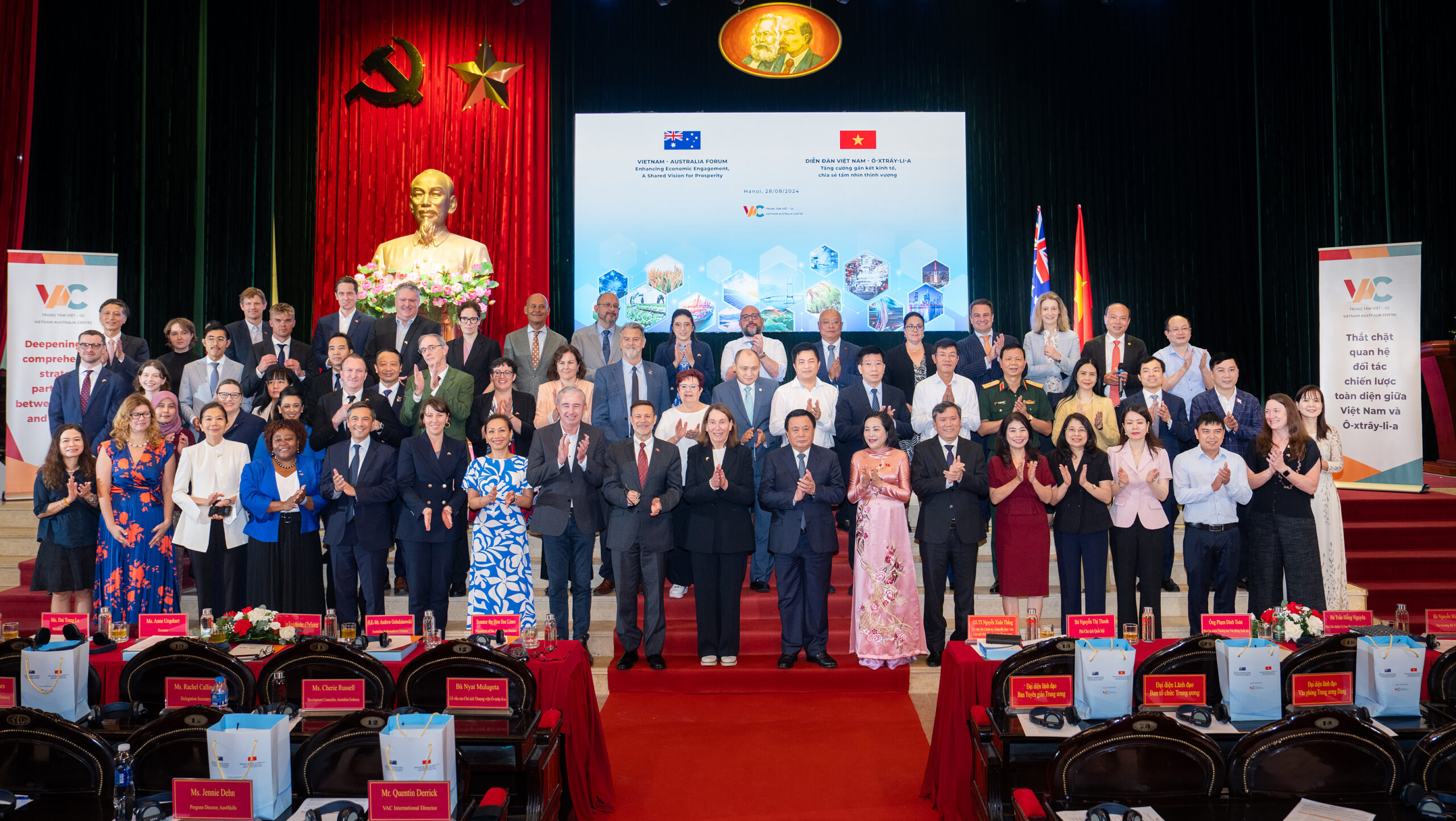Australia, with a long, proud legacy of working with Vietnam to build skills for socioeconomic development, continues to support Vietnamese alumni long-term after their Australian education complete. Through Aus4Skills, alumni access opportunities to network and collaborate through regular knowledge-sharing activities hosted by dynamic groups of co-convenors in six key fields, including workshops and field visits held across Vietnam.
In July 2024, alumni joined the Agriculture Professional Group in a study trip to Can Gio Biosphere Reserve where they discussed with veteran conservationists about supporting the protection and growth of the mangroves. Co-leading the activity, Dr Le Buu Thach, Deputy Director of the Southern Institute of Ecology, Vietnam Academy of Science and Technology and University of Queensland alumni, spoke to Aus4Skills on how Australian alumni in Vietnam can contribute to mangrove conservation.

Dr Le Buu Thach, Deputy Director of the Southern Institute of Ecology, shares experience on biodiversity conservation at Can Gio Mangrove Biosphere Reserve.
Dr Le Buu Thach, you are a veteran researcher on biodiversity conservation in Can Gio Mangrove Biosphere Reserve. How important is Can Gio to the ecosystem of the Mekong Delta and Vietnam?
Can Gio mangrove is recognised by UNESCO as Vietnam’s first biosphere reserve and is a crucial part of Ho Chi Minh City and the Mekong Delta. Nicknamed ‘the green lung of HCMC’, the mangrove helps to regulate HCMC’s microclimate, filter the city’s air, and protect it from the negative impacts of storms, floods, and climate change. As Vietnam’s richest mangrove ecology, Can Gio is not only the habitat of several plant and animal species, but it also provides resources for aquafarming and ecotourism, improving the livelihood of local communities. UNESCO’s recognition also supports scientific research and environmental education in Can Gio.
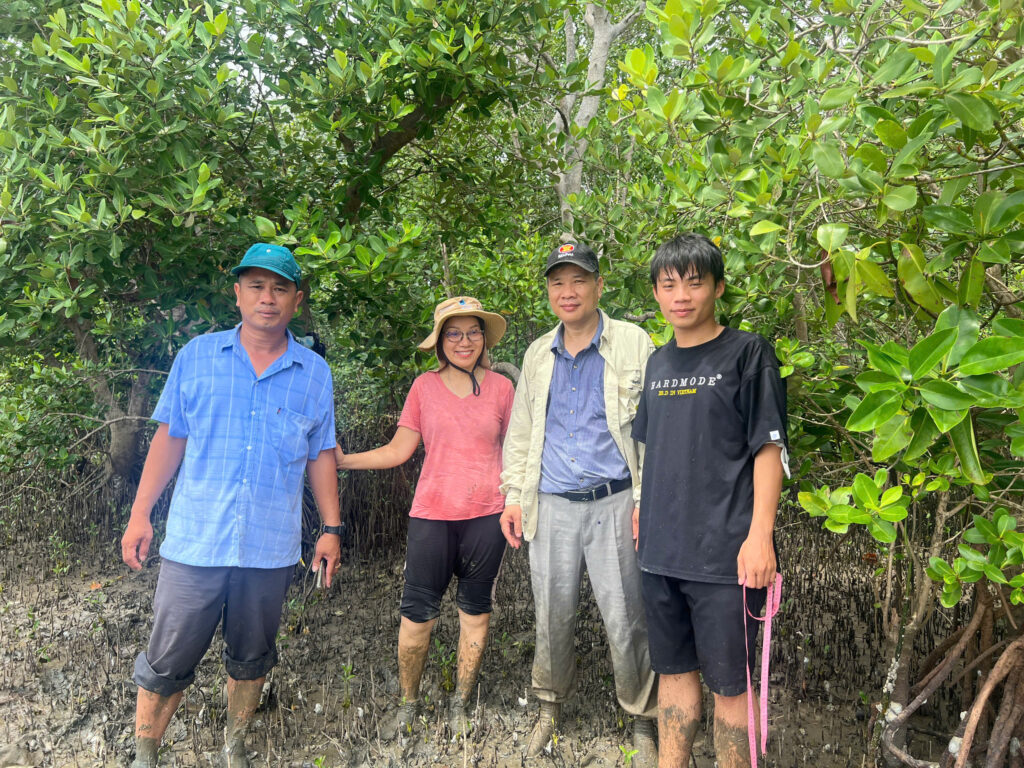
Dr Le Buu Thach and colleagues at Nha Trang University conduct research in the mangrove.

Dr Le Buu Thach, head researcher, presents results of the research ‘Studying and building a collaborative, sustainable tourism-conservation model in Can Gio Biosphere Reserves.’
What are the key results of Vietnam’s ongoing efforts to restore and develop Can Gio Mangrove Biosphere Reserve? How can stakeholders contribute to addressing challenges to its protection?
Vietnam has achieved significant results in the sustainable development of the Can Gio Mangrove Biosphere Reserve. The restoration and expansion of the mangrove area have paved the way for conservation efforts and forest management, helping to reduce forest land encroachment and deforestation. Education programs to raise public awareness have also contributed to protecting the biosphere reserve.
Here are my suggestions for stakeholders to ensure a balance between conservation efforts and infrastructure development projects:
- Local government agencies should carry out comprehensive assessments to ensure that infrastructure development does not overload the ecosystem. They should also establish a supervision mechanism to closely monitor these projects.
- Investors and businesses must commit to supporting conservation, monitoring, and restoration activities of the mangrove forests under the coordination of the Can Gio Biosphere Reserve Management Board. They should be obliged to utilise advanced technology to minimise negative impacts of infrastructure development and avoid causing harm to the sensitive mangrove ecosystem.
- Local communities should play a key role in protecting and monitoring the mangroves. They can join environment restoration and natural resource management programs, develop and support green tourism, and provide environmentally friendly products and services. This way, they help protect the mangroves while creating economic benefits for their localities.
- International organisations can provide technical assistance and recommendations for the sustainable conservation of the mangroves. By strengthening international cooperation in this field, we can exchange knowledge and expertise on mangrove management and protection.
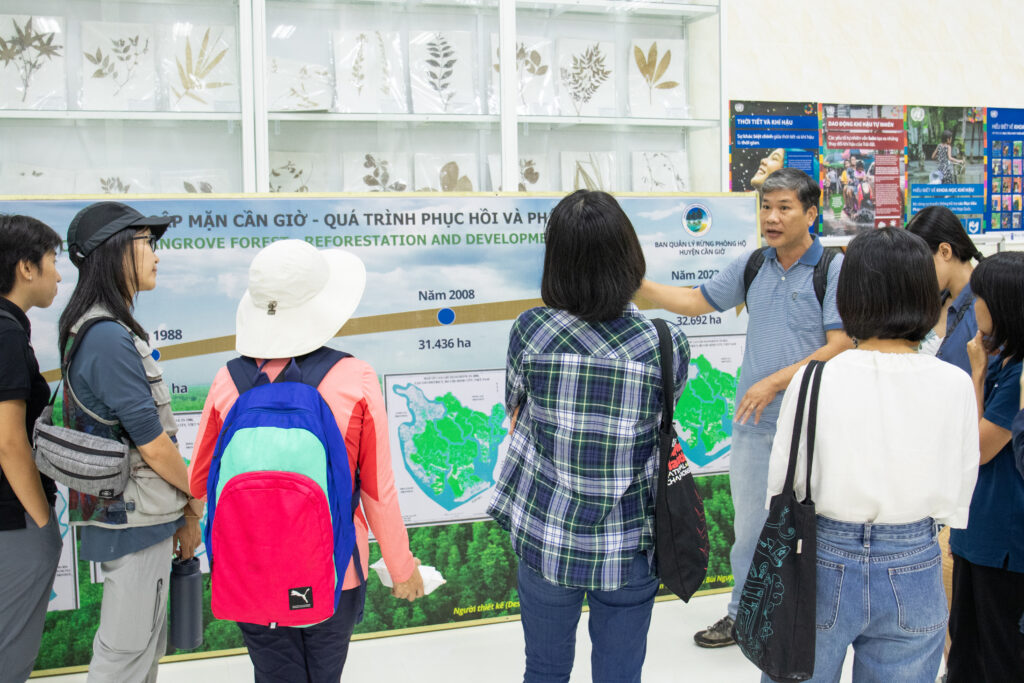
Dr Le Buu Thach and fellow Australian alumni discuss the sustainable development of Can Gio mangrove.
Please tell us about your study in Australia. How did you apply the knowledge and experience from your Australian education to your conservation work in Vietnam?
I completed my PhD at the School of Integrative Biology, The University of Queensland (UQ) in 2007 with a scholarship from Vietnam’s Ministry of Education and Training. My thesis studied the ecological and physiological characteristics of rare plant species as a basis for developing and implementing conservation plans. Throughout my study and research, I received great support from my professors and awards from UQ to attend conferences and field trips, as well as a UQ Thesis Submission Scholarship.
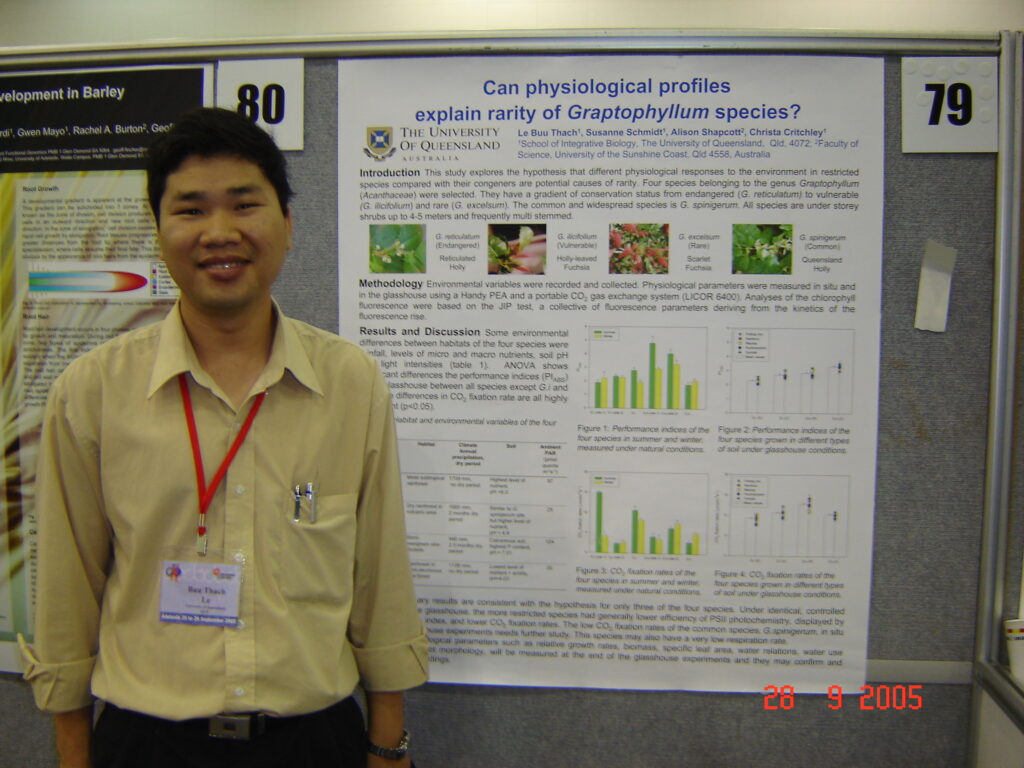
Le Buu Thach at an International Scientific Conference in Adelaide, 2005.
After completing my study at UQ, I returned to the Southern Institute of Ecology in Vietnam and continued working on ecological conservation and sustainable development. I’ve been applying crucial experience from Australia to my work, including research methodology, field study, field research design, environmental conservation and management, analytical and problem-solving skills, and technology education and transfer. I’ve also been teaching and supervising MA and PhD theses on the conservation of forest ecosystems and their cross-cutting applications in agriculture and urban development. I’ve joined my colleagues at the Southern Institute of Ecology in extending research to biosphere reserves such as Langbiang in Lam Dong, Can Gio (HCMC), and Nui Chua (Ninh Thuan).
Australian alumni in the Agriculture Professional Group recently visited Can Gio Mangrove Biosphere Reserve and learned about conservation through discussion with the management board. How do you think alumni can contribute to conservation efforts in Can Gio and across Vietnam?
Australian alumni, especially professionals in agriculture and the environment, can make long-term, effective contributions to conservation in the Can Gio mangrove and other vital ecosystems in Vietnam through knowledge-sharing activities.
- They can build a professional network of scientists, experts, and state management officials in the fields of conservation and sustainable development. This network can host seminars and workshops to share new research results, field experiences, and innovative solutions to protect the mangroves.
- Alumni can collaborate with domestic agencies in research projects to introduce technological advances in mangrove management and conservation, focusing on assessing environmental impacts and developing green economic models and sustainable agriculture.
- Knowledge gained in Australia, a leading country in nature conservation, enables alumni to support capacity building in relevant fields in Vietnam. They can conduct training workshops or short courses for forest management officers, forestry students, and local communities on crucial topics such as natural resource management, biodiversity conservation, and ecotourism.
- Alumni can support local communities directly in their ecotourism projects by connecting them to international organisations to seek fundings and technical assistance. Such collaborations will boost the effectiveness of the projects and ensure sustainability.
- Additionally, alumni can utilise their knowledge and experience from Australia to develop communication campaigns on the significance of sustainable mangrove protection, enhancing public awareness and participation. For example, they can write articles or produce documentaries in support of those campaigns, furthering public reach.
Thank you so much for sharing your expertise on mangrove protection and providing many ideas for alumni to join Vietnam’s efforts!

Australian alumni learn about Can Gio Biosphere Reserve in a discussion with the management board.
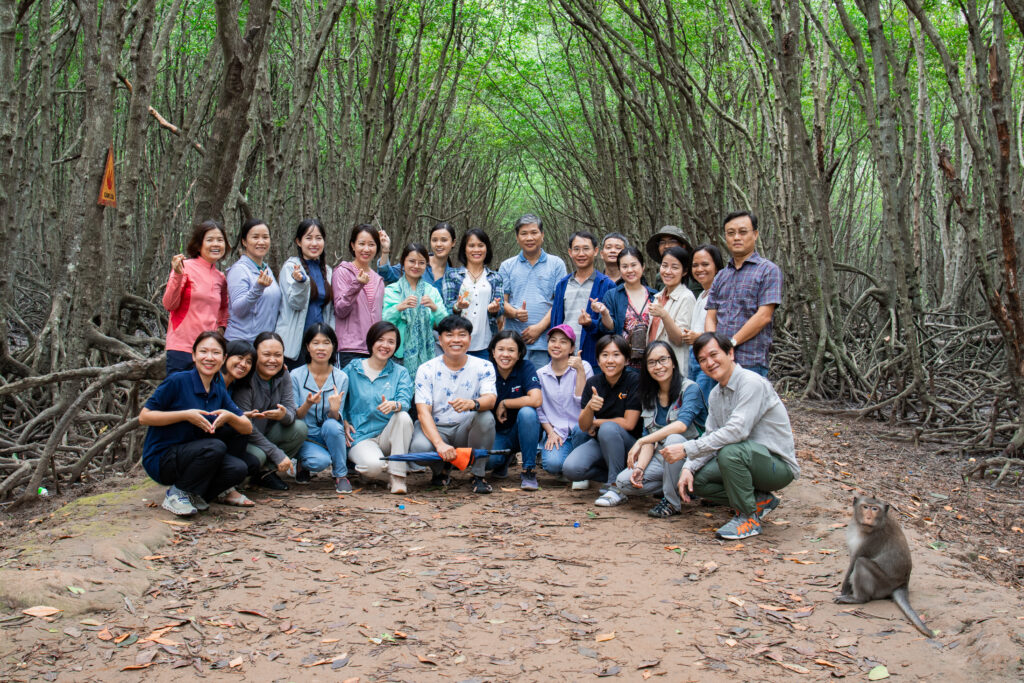
Australian alumni visit Monkey Island during their field trip to Can Gio Mangrove Biosphere Reserve.
| Located in the southeast of Ho Chi Minh City, Can Gio Mangrove Biosphere Reserve covers over 70,000 hectares, occupying one-third of the city’s total area. Historically, this land, also known as Sac Forest Guerrilla Base, was a key battleground in the two resistance wars and was devastated by toxic chemicals that turned the zone into an uninhabited land. After the war, the uninhabited mangrove forests have gradually been invigorated.
The major habitat types found in Can Gio are plantation mangrove, of which there is about 20,000 hectares; and naturally regenerating mangrove, of which there is about 7,000 hectares. The mangroves contain a high diversity of floral and faunal species, many of them are listed among rare species by the 2007 Red Data Book of Vietnam. The reserve is divided into three conservation areas, of which Vam Sat is home to around 2,000 birds belonging to 33 species, while Monkey Island shelters over 1,000 individuals of Maccaca fascicularis (long-tail monkeys), and Zone 15a is inhabited by over 500 bats. |
| There are over 100,000 Australian alumni in Vietnam, including over 6,500 Australia Awards recipients. Vietnamese alumni of Australian education work across all sectors of Vietnamese industry and Government. Many have gone on to make substantial contributions towards Vietnam’s socioeconomic development and build invaluable lifelong networks both in Vietnam and Australia.
The Australian Government provides long-term support for alumni through
|






